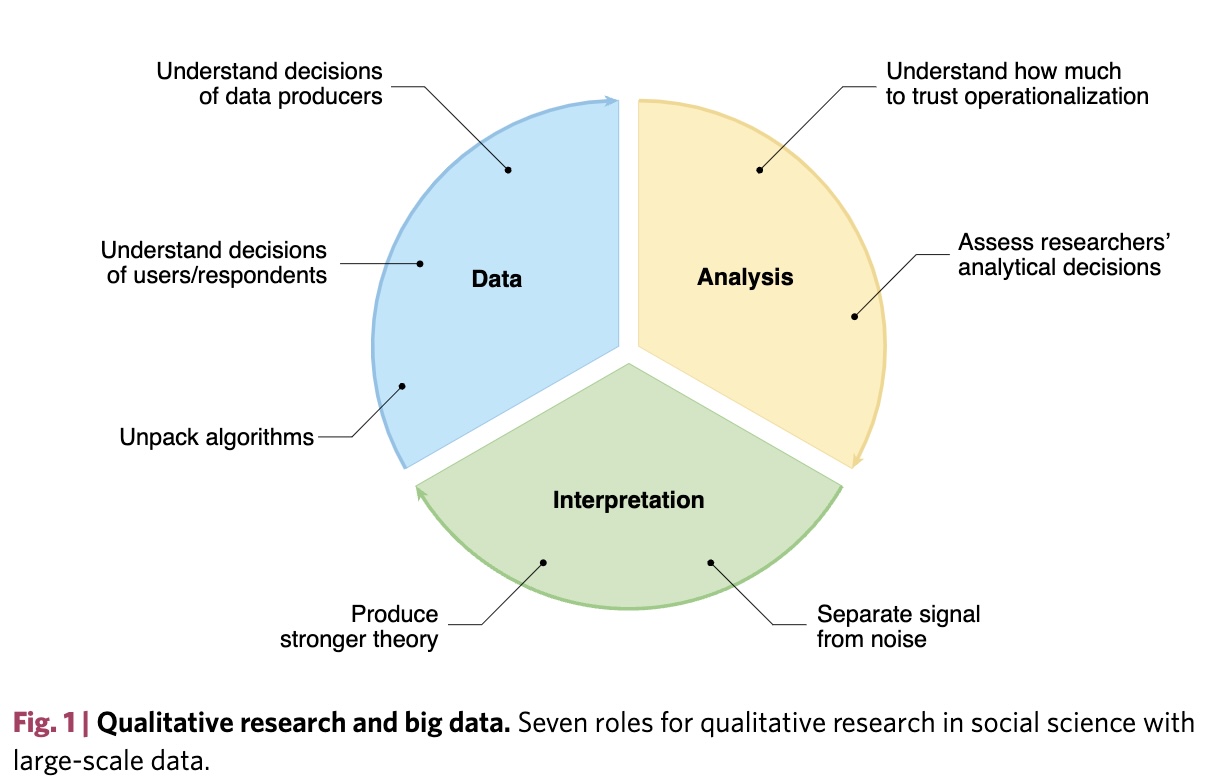The data revolution in social science needs qualitative research

The data revolution in social science needs qualitative research
Nikolitsa Grigoropoulou and Mario L. Small
Nature Human Behaviour
28 March 2022
https://doi.org/10.1038/s41562-022-01333-7
Although large-scale data are increasingly used to study human behaviour, researchers now recognize their limits for producing sound social science. Qualitative research can prevent some of these problems. Such methods can help to understand data quality, inform design and analysis decisions and guide interpretation of results.
he proliferation of large-scale data on human behaviour has helped to usher in a data revolution in the social sciences, stimulating researchers to study topics such as network evolution, political polarization and racial inequality in ways that previously were difficult or impossible1. But researchers now recognize that large-scale datasets from companies or agencies may have characteristics that unwittingly lead researchers to misrepresent social reality, and produce bad science2,3. We believe that methods often thought not to be essential to formal science — qualitative methods, such as in-depth interviewing and field observation — will help to prevent these issues. Using these methods will be necessary not only for background or context, but also to understand the quality of the data, to inform design and analysis decisions, and to guide the interpretation of results. We see at least seven reasons why qualitative research will be essential to ‘big data’ social science:
- Decisions that affect data production – We need qualitative research to understand the decisions of those who produced the datasets.
- Decisions made by respondents – We need qualitative research to understand the decisions of those who generated the data points.
- The nature of algorithms – We need qualitative research to understand what lies behind algorithms.
- Linking variables to concepts – We need qualitative research to understand how much trust we can place in operationalizations.
- Analytical decisions – We need qualitative research to understand researchers’ analytical choices.
- From data to theory to data – We need qualitative research to generate strong theories.
- Recognizing noise – We need qualitative research to avoid wrongly inferring meaning in ambiguous patterns.
Nikolitsa Grigoropoulou is a Postdoctoral Researcher at the SOCIUM Research Center on Inequality and Social Policy, University of Bremen, Bremen, Germany
Mario Luis Small is a sociologist and Quetelet Professor of Social Science at the Department of Sociology, Columbia University, New York, NY, USA



